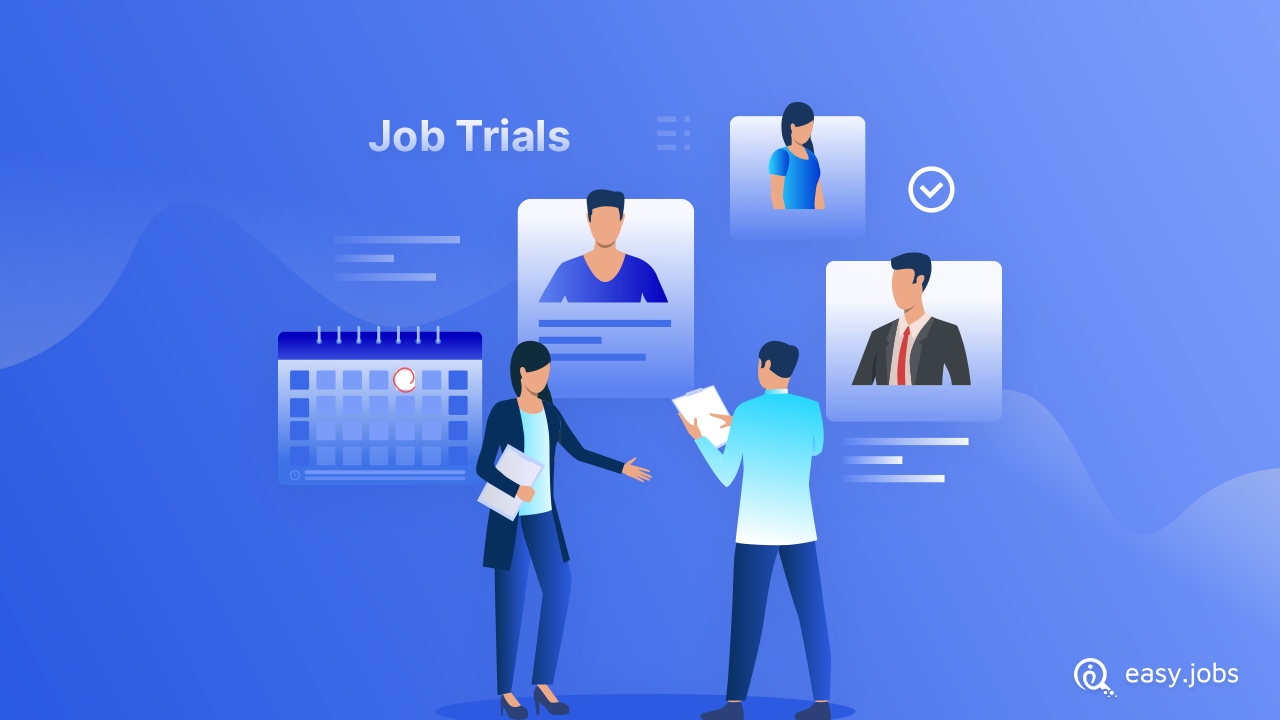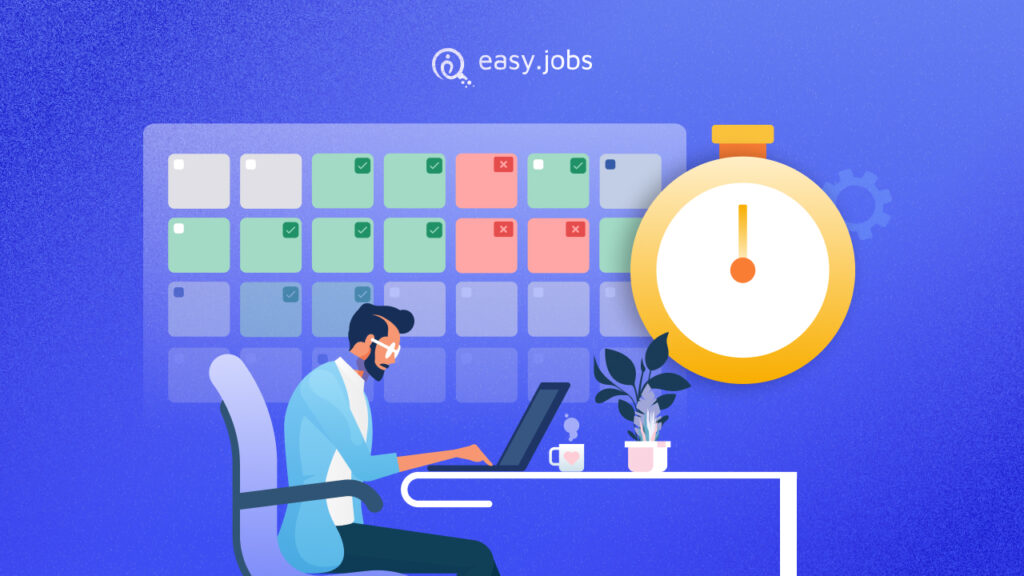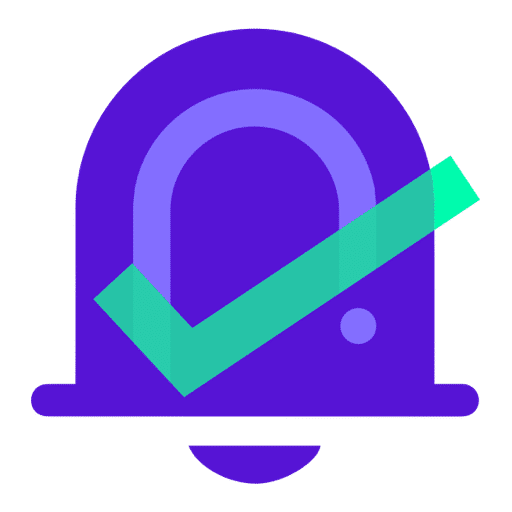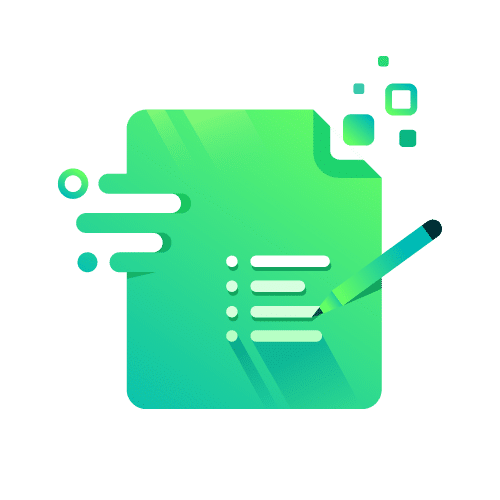The purpose of hiring any new employee in an organization is to enhance the workforce and make the team stronger. So before onboarding anyone how can you know if a newly hired man can be helpful or not? That’s where a job trial period or probation period is being introduced. It is the time any organization takes to evaluate new onboarding employees’ performance before offering them permanent employment.
In job trials, onboarding employees are fully under the observation of any organization for about 60 or 90 days. And in some cases, this trial period can be extended for a longer duration. This period should be clearly mentioned at the time any organization decides to take any new employee.
During job probation onboarding, employees have the opportunity to learn about organizational culture, cope up with new work activities, and more. They can also get their initial training that is arranged by the organization to nurture the new employees and get along with their culture.
So this can help organizations to rate how fast a new member can learn in a new environment and be efficient at their work. This will help the hiring organization to decide whether or not the new member has adjusted well to the team and deserves a permanent position in the company.
Job trial period or probation period stands with this concept. As a professional, you should be familiar with the term probation period or job probation period and all the different types of trial periods there are. If not, don’t worry, you are going to know all the details in this blog.
What Are The Different Types Of Job Trials?
During the job trial period, most companies consider paying the new employee their negotiated salaries, and in some cases, they offer a free training period. Both parties should be clear about the trial rules and regulations. And with this offer, employees will decide whether they want to go with this trial period or not. According to this concept, the trial period can be divided into two types, one is paid job trials, another one is unpaid job trials.
Paid Job Trials:
Newly on-boarded employees will get their negotiated salary and accept to be on the job trials. After that, if the new hire performs satisfactorily well, they will be on board permanently.
Unpaid Job Trials
In unpaid trials, onboarded new employees will not get any payment. They will get their training, and according to this, how they are performing will help organizations decide whether to have them join as a permanent full paid employee or not.
What Are The Benefits Of Job Trials?
Hopefully, you have now clearly understood the purpose of job trials or probation periods. Now let us know why probation periods are important and the ultimate benefits that both parties, new employees, and the organization get in detail. Check it out:
✅Job probation periods help organizations to judge their newly hired man’s productivity efficiency, and how quickly they can learn and execute a task. Overall performance of the newcomer can be evaluated very easily.
✅For new employees, they can also get a clear idea about their work efficiency, flaws, and overall time management skill, etc.
✅Onboarding employees can get initial training that will be helpful to get them on track after being permanent. An organization can also evaluate its present workforce during the training.
✅That company’s present workforce can polish themselves by helping the new employees and can clearly decide within a short probation period, who they should work with in the future.
Tips: Plan Successful Job Trials Period For Newly Onboards
Before starting your job trials for new onboards, there are several things that you have to assure to make your permanent recruitment process smooth. That’s why you need to organize your entire trial period smoothly with effective plans. Let’s check out some tips for successful trials:

Come Up With A Clear Documented Process
When you have already planned to go through a job trial period for single or multiple newly hired employees, make sure you plan for the whole trial process with documents. Need to take notes in detail about where your process will start, the duration, where it ends, how you are going to evaluate, what resources you should provide, and more. All things should be documented somewhere secure. So that you can easily reuse the plans or can modify them at any time.
Follow Up Your Job Trial Execution
After making up the plans, you should plan for how your entire trial execution for the probation period works and if there is anything you should change or not. Check whether the training is going smoothly for your newly onboarding employees if there is anything else they need and everything else in detail. This is to make you recognize your trial period’s flaws and success both at the same time.
Empower New Hires From The Beginning
Another powerful tip you can include is to provide urgent or side projects to your new hires. This should be included with their daily work. So that you can check how they are managing multiple projects, or even can reach out to the targets. In both ways, you can end up with a great conclusion. You can easily decide the potential of each new employee and decide whether to make them permanent or not.
Encourage Employee Opinion
Employee opinion always matters and when you are onboarding a new employee this is a must. It will encourage them to make their own decision. Also, in any case, if there’s any improvement you think they need, you can suggest and grow their ability to take feedback or suggestions as well. This is helpful to provide positive energy to new teammates.
Provide Comfortable Environment
When the job probation period starts, comfort is one of the essentials any organization should ensure first. If your workplace is friendly, helpful, and direct communication is easy, any new employee can feel homely and quickly cope up with the diversified people and environment without any hassles. You can then have the best of your new employees too. Because professionals spend most of their time in an office environment, so that has to be flexible and easy.
Open Up The Communication Lines
Communication is most important when you are starting job probation periods or probation periods. If your new onboards face any issues, they should know where they should communicate their problems. And that communicator should have to be flexible enough to respond swiftly. Or if your trainer has any issues regarding onboarding that also have to be solved during direct communication. So these direct communication lines should be in place.
Bonus Tip: 10 Different Types Of Hiring Methods & The Best One You Should Use
Start Your Job Trials Now Following Right Process
A job trial period or probation period is important for any organization. But lack of understanding, detailed processes, and tricks sometimes make the situation difficult. So to know what job trials are, the importance, benefits, and tips of success are essential.
Read More: Get Your Ultimate Remote Hiring Guide Using easy.jobs
Hope you find this blog and let us know your thoughts by commenting below. And to get more exciting blogs, subscribe to our blog page and join our Facebook Community for further assistance.












